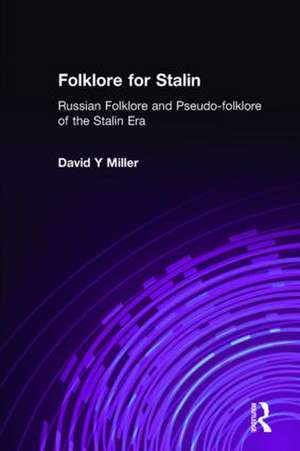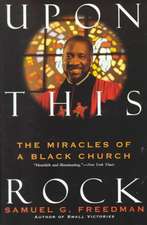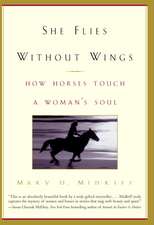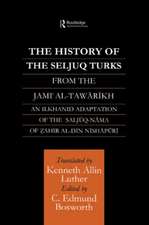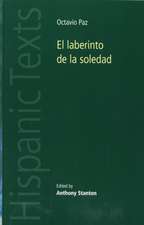Folklore for Stalin: Russian Folklore and Pseudo-folklore of the Stalin Era
Autor Frank J. Milleren Limba Engleză Hardback – 31 oct 1991
Preț: 1000.27 lei
Preț vechi: 1219.84 lei
-18% Nou
Puncte Express: 1500
Preț estimativ în valută:
191.43€ • 199.11$ • 158.03£
191.43€ • 199.11$ • 158.03£
Carte tipărită la comandă
Livrare economică 15-29 aprilie
Preluare comenzi: 021 569.72.76
Specificații
ISBN-13: 9780873326681
ISBN-10: 0873326687
Pagini: 214
Dimensiuni: 156 x 234 x 22 mm
Greutate: 0.45 kg
Ediția:1
Editura: Taylor & Francis
Colecția Routledge
Locul publicării:Oxford, United Kingdom
ISBN-10: 0873326687
Pagini: 214
Dimensiuni: 156 x 234 x 22 mm
Greutate: 0.45 kg
Ediția:1
Editura: Taylor & Francis
Colecția Routledge
Locul publicării:Oxford, United Kingdom
Cuprins
Foreword -- Preface -- 1 The Origins of Folklore for Stalin -- 2 The Noviny -- The Noviny of M. S. Kriukova -- The Noviny of P. I. Riabinin-Andreev -- The Noviny of N. V. Kigachev, E. S. Zhuravleva A. M. Pashkova, and M. K. Riabinin -- Other Noviny -- The Noviny of M. R. Golubkova -- Noviny Based on the Traditional Lament -- 3 Soviet Tales -- The Tales of I. F. Kovalev -- The Tales of G. I. Sorokovikov -- The Tales of Other Storytellers -- 4 The Fate of Pseudofolklore -- APPENDIX I Synopses ofNoviny -- APPENDIX II Synopses of Soviet Tales -- APPENDIX III Translations -- Notes -- Bibliography -- Index.
Notă biografică
Frank J. Miller received his Ph.D. in Russian literature from Indiana University. He is currently Associate Professor of Russian at Columbia University where he is the Coordinator of the Russian Language Program. He is also the author of A Handbook of Russian Verbs, Reading and Speaking about Russian Newspapers, as well as many articles on language and folklore.
Descriere
After the First Congress of Soviet Writers in 1934, folklore, like literature, became an instrument of the political propagandist. Folklorists began to produce works of pseudofolklore that often featured Joseph Stalin in the hero's role. This study includes synopses of some of these works.
